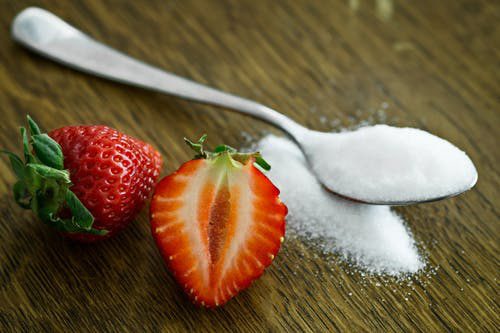 When we stop drinking alcohol or using drugs we can easily, without warning – replace that addiction with sugar. Satisfying ourselves with a little sugar instead of our previous addiction is easy to justify. The problem is that alcohol and drug addiction share common characteristics with how the body reacts to sugar.
When we stop drinking alcohol or using drugs we can easily, without warning – replace that addiction with sugar. Satisfying ourselves with a little sugar instead of our previous addiction is easy to justify. The problem is that alcohol and drug addiction share common characteristics with how the body reacts to sugar.
How Does Sugar Affect the Brain?
Web MD wrote: Sugar gives you a rush, messes with your mind, and always leaves you wanting more – and now researchers are calling for the government to regulate the sweet stuff like a drug. Sounds pretty much just like our former addiction.
Is sugar worse for you than, say, cocaine? According to a 2012 article in the journal Nature, it’s a toxic substance that should be regulated like tobacco and alcohol. Researchers point to studies that show that too much sugar (both in the form of natural sucrose and high-fructose corn syrup) not only makes us fat, it also wreaks havoc on our liver, mucks up our metabolism, impairs brain function, and may leave us susceptible to heart disease, diabetes, even cancer.
Cravings
When we experience cravings in recovery, the quickest way to satisfy those cravings is with sugar. Cravings for our former drug of choice are quickly satisfied with a doughnut or candy bar. A little sugar is OK, but we must remember that we are addicts and if little feels good, we will probably want to over do it. We have all experienced the aftermath of a sugar fest.
Good nutrition and healthy eating habits are super important for long term recovery. Not only does eating right make us feel better, it more importantly keeps our cravings at bay. Studies have shown that most addicts and alcoholics who relapse are not eating right, or skipping meals all together. Studies also reveal that by eating a high protein snack every 2 to 3 hours we will significantly decrease – if not totally eliminate our cravings. Not only can we take control of our cravings, we can feel better too.
 To learn more about programs offered at English Mountain Recovery, call and speak with someone today at (877) 615-8569. We are ready to help you or your loved one recover.
To learn more about programs offered at English Mountain Recovery, call and speak with someone today at (877) 615-8569. We are ready to help you or your loved one recover.


